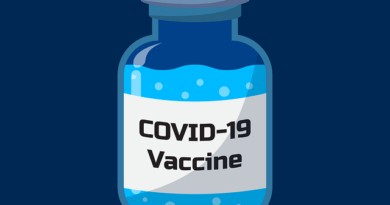Rashtriya Karmayogi Janseva Programme
Contents
Rashtriya Karmayogi Janseva Programme: Transforming Civil Services through Capacity Building
Introduction
The Rashtriya Karmayogi Janseva Programme represents a groundbreaking initiative under India’s Mission Karmayogi framework, designed to fundamentally transform the mindset and service orientation of government officials. Launched by the Capacity Building Commission, this programme aims to cultivate the spirit of “Seva Bhav” (service attitude) among civil servants, transitioning them from mere rule-followers to citizen-centric public servants.
Background and Genesis
The programme emerged as part of the broader National Programme for Civil Services Capacity Building (NPCSCB) – Mission Karmayogi, which was approved by the Union Cabinet on September 2, 2020. The initiative recognizes that civil services are at the epicenter of all government activities and play a crucial role in policy implementation and public service delivery. The need for such comprehensive reform became evident through various reports, including NITI Aayog’s “Strategy for New India@75” in 2018, which highlighted the necessity for strengthening online training avenues and developing competency-driven capacity building.
Key Objectives and Philosophy
Primary Objectives
The Rashtriya Karmayogi Janseva Programme serves multiple interconnected objectives:
Fostering Seva Bhav: Instilling a deep sense of service orientation among government officials
Enhancing Professional Capacity: Building competencies that enable efficient and effective public service delivery
Promoting Citizen-Centric Governance: Shifting focus from rule-based to citizen-focused administration
Creating Accountable Workforce: Developing a more responsive and compassionate bureaucracy
Philosophical Foundation
The programme is built on the philosophy of transforming civil servants from “Karmachari” (employees) to “Karmayogi” (dedicated workers). This transformation encompasses three fundamental shifts:
Karamchari to Karmayogi: Personal transformation of mindset and approach
Rule-based to Role-based: Transition from rigid adherence to rules to flexible, role-specific performance
Organizational Transformation: Systemic change in institutional culture and practices
Institutional Framework
Capacity Building Commission (CBC)
The Capacity Building Commission, established in 2021, serves as the apex body responsible for designing and implementing capacity building programs. The CBC plays a crucial role in:
Harmonizing training standards across institutions
Creating shared faculty and resources
Supervising Central Training Institutions
Facilitating preparation of Annual Capacity Building Plans
Special Purpose Vehicle (SPV) – Karmayogi Bharat
Incorporated on January 31, 2022, under Section 8 of the Companies Act 2013, Karmayogi Bharat operates as a 100% government-owned not-for-profit company. Its key responsibilities include:
Operating and managing the iGOT Karmayogi digital platform
Creating and curating learning content
Managing intellectual property rights
Providing proctored assessment services
Ensuring platform governance and data management
Six Pillars of Mission Karmayogi
The broader Mission Karmayogi framework operates on six fundamental pillars:
Policy Framework: Establishing strategic direction for capacity building initiatives
Institutional Framework: Creating organizational structures for implementation
Competency Framework: Defining core competencies and skills requirements
Digital Learning Framework (iGOT-Karmayogi): Providing technological infrastructure for learning
Electronic Human Resource Management System (e-HRMS): Managing human resources digitally
Monitoring and Evaluation Framework: Tracking progress and measuring effectiveness
FRAC Framework: Foundation of Competency Development
Understanding FRAC
The Framework for Roles, Activities, and Competencies (FRAC) forms the backbone of Mission Karmayogi’s competency-driven approach. This framework categorizes competencies into three distinct types:
Behavioral Competencies
These represent underlying characteristics including motives, traits, skills, and aspects of one’s social image that result in effective performance. Key behavioral competencies include:
Values and Ethics
Leadership and Supervisory Skills
Communication and Interpersonal Skills
Decision-making and Problem-solving
Citizen-centricity and Service Orientation
Functional Competencies
Domain competencies that are applicable across many organizations, functions, and positions. These include cross-cutting skills such as:
Project Management
Financial Management
Policy Analysis and Formulation
Digital Literacy
Data Analysis
Domain Competencies
Specialized knowledge elements, skills, and abilities required for specific roles or sectors. These are typically:
Sector-specific technical knowledge
Specialized regulatory understanding
Department-specific processes and procedures
Field-specific expertise
Programme Implementation and Methodology
Training Methodology
The Rashtriya Karmayogi Janseva Programme employs innovative training methodologies that move away from traditional lecture-based approaches:
Interactive Learning Modules
The programme consists of four short training sessions, each lasting approximately 1.5 hours. These sessions incorporate:
Open discussions and group dialogues
Team-building exercises
Problem-solving activities
Case study analysis
Experiential learning through real-world scenarios
Key Training Components
The training modules focus on several core themes:
Self-awareness: Understanding personal strengths and areas for improvement
Motivation: Building intrinsic motivation for public service
Leadership Development: Enhancing leadership capabilities at all levels
Public Service Contribution: Emphasizing the impact of individual actions on society
70-20-10 Learning Model
Mission Karmayogi adopts the globally recognized 70-20-10 learning model:
70%: Learning through on-the-job experiences and reflections
20%: Learning through collaboration and interaction with colleagues
10%: Learning through formal training programs
Digital Infrastructure: iGOT Karmayogi Platform
Platform Capabilities
The Integrated Government Online Training (iGOT) Karmayogi platform serves as the digital backbone of the programme. As of December 2024, the platform has achieved significant milestones:
Over 49 lakh civil servants onboarded
More than 1,500 courses available
Over 2.7 crore course enrollments
More than 1.9 crore course completions
Platform Features
The iGOT platform provides comprehensive learning solutions including:
Anytime-Anywhere Learning: Flexible access to learning resources
Multi-modal Learning: Support for online, face-to-face, and blended learning
Guided Learning Paths: Structured progression through competency development
Assessment and Certification: Proctored assessments and skill validation
Content Marketplace: Curated repository of learning materials
Programme Coverage and Scope
Target Beneficiaries
The programme covers a comprehensive range of government employees:
All civil servants including contractual employees
Officials across different ministries, departments, and organizations
Personnel at Central, State, and local government levels
Approximately 46 lakh Central government employees initially
Expansion planned to cover 2 crore government officials eventually
Sectoral Implementation
Various ministries and departments have successfully implemented the programme:
Ministry of Ayush: Multiple batches covering traditional medicine expertise
Department of Social Justice and Empowerment: Focus on welfare scheme implementation
Department of Pension and Pensioners’ Welfare: Emphasis on citizen service delivery
Ministry of Personnel: Integration with broader administrative reforms
Qualitative Impact
The programme has generated significant qualitative improvements:
Enhanced Service Orientation: Officials demonstrate improved citizen-centric approach
Increased Accountability: Greater responsiveness to public needs and concerns
Leadership Development: Improved decision-making and problem-solving capabilities
Cultural Transformation: Shift from rule-based to role-based thinking
Challenges and Implementation Issues
Digital Infrastructure Challenges
The programme faces several technological and accessibility challenges:
Digital Divide: Limited internet access in remote areas affecting participation
Technology Adoption: Resistance from senior officials accustomed to traditional training
Platform Scalability: Managing increased user load and content demands
Institutional Challenges
Several organizational factors pose implementation challenges:
Coordination Issues: Ensuring seamless coordination between central and state institutions
Resource Constraints: Adequate funding and infrastructure readiness
Change Resistance: Overcoming traditional bureaucratic mindset and practices
Assessment and Evaluation Challenges
Measuring the programme’s effectiveness presents unique difficulties:
Behavioral Change Measurement: Quantifying improvements in service orientation and ethics
Performance Assessment: Developing credible and transparent evaluation mechanisms
Long-term Impact: Assessing sustained behavioral and institutional changes
Best Practices and Success Stories
Ministry-Specific Adaptations
Different ministries have adapted the programme to their specific contexts:
Ministry of Ayush
Integration of traditional medicine case studies
Focus on holistic health service delivery
Emphasis on cultural and ethical dimensions of service
Department of Social Justice and Empowerment
Specialized modules on welfare scheme implementation
Focus on marginalized community service delivery
Integration of legal frameworks and accessibility measures
Innovative Training Approaches
The programme has pioneered several innovative methodologies:
Interactive Problem-Solving: Real-world case study analysis
Peer Learning: Collaborative learning through team exercises
Reflective Practices: Self-assessment and continuous improvement
Contextual Learning: Department-specific scenarios and applications
Future Directions and Expansion Plans
Technological Enhancement
The programme plans several technological improvements:
AI-Powered Learning: Personalized learning paths using artificial intelligence
Mobile-First Approach: Enhanced mobile accessibility for field officials
Advanced Analytics: Sophisticated data analysis for performance tracking
Virtual Reality Training: Immersive learning experiences for complex scenarios
Geographical Expansion
The programme aims for comprehensive coverage:
State Government Integration: Enabling willing state governments to align their capacity building plans
Local Body Coverage: Extension to panchayati raj institutions and urban local bodies
International Collaboration: Learning from global best practices and sharing Indian experiences
Competency Framework Evolution
Continuous refinement of the competency framework is planned:
Dynamic Competency Mapping: Regular updating of required competencies
Emerging Skill Integration: Incorporation of new-age skills and technologies
Cross-Sectoral Competencies: Development of transferable skills across departments
Discover more from Simplified UPSC
Subscribe to get the latest posts sent to your email.

